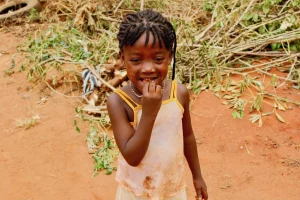In Igbo land, there is a raging controversy over daughters’ inheritance. Some cultures say that daughters do not inherit landed properties from their parents rather they inherit movable properties; that it is only immovable properties that they do not inherit because they are meant to be married to other families.
Igbo Culture
Igbo culture does not leave her daughters to go empty-handed on inheritance issues. They are given properties at marriage (dowry) which will help them to settle down comfortably in their husband’s homes. A father is allowed, in Igbo culture, to give his daughter a parcel of land outside his ancestral home in the olden days as an expression of gratitude to that daughter of his for taking good care of them (her parents).
The Igbo ethnic group’s Land inheritance customs appear to favor men over female relatives of a deceased male’s family.
Igbo Cultural Practices That Affects Women

In cases where there is an absence of sons; the deceased’s personal property including lands goes to his siblings, who share it according to seniority. Although Igbo women are by and large excluded from inheritance, the females are permitted joint tenancy with their brothers whether married or not while the eldest son is left in full control over such property.
Traditionally, a woman can be charged with staying unmarried to maintain the lineage rights to her father’s land. Such customs are called nrachi or idegbe in Nnewi, while in Nanka it is called nnuikwa or nnachi. Several other communities in the Igbo lands have this practice with various names attached to it.
Also Read: Dinka Tribe of South Sudan – Culture, Language and People
This custom takes effect when there is an absence of a son or male descendant; a daughter is then given the option to stay in the family to assume the status of a female son. She is also encouraged to procreate to maintain the continuity of the family and the lineage.
Such daughters are not only referred to as female sons but also “a female father” as she assumes the role of the head of her family on the death of her father. As a female son, she is entitled to own ancestral land as well as inherit other extended family property.
The Nnuikwa Ceremony
For example, in Nnaka, the requirements needed to perform the nnuikwa ceremony are two gallons of Nkwu-enu, two gallons of ngwo, one live cock, kola nuts, and assorted food for the guests, and is performed in the presence of her umunna (relatives).
The chief priest performs the ceremony and introduces the bride to her Ndichie (ancestors). She automatically becomes a man after the ritual and is wield the rights of a man. With that, the journey of obiechina begins – meaning “may my kindred never end”. After the ritual, children born by her can then inherit the lands of her father as well as the ancestral lands of her father.
Men who father their children would not be responsible for the children. They also cannot inherit the land willed to her or her sons. The men who father the children are thus regarded as “efuru efu.”
Also Read: The Origin Of NOK Culture
Why are Women Not Allowed To Inherit Landed Property?
Richard Mordi covers the female exclusion practice in his renowned work “Inheritance and Land Ownership in an Igbo village”. He claims that because a woman is a portion of her husband’s property, the bereaved wife cannot take custody of his land or goods. “How can one property inherit another property?. He believes that it is the payment of the bride price that transforms a woman into an inheritable property. Another author states that the widow is made into an object of inheritance rather than a subject of inheritance.”
The major reason the Igbo culture exclude the daughters in the sharing of the family landed property is to avoid the land passing to another family or tribe since the daughters will eventually get married whilst all landed property in question were in the patriarch’s ancestral home. However, properties outside the ancestral homes or land are different, if a man owns property outside the family compound, the females in the family are entitled to share from the sale of the property or inherit such lands.
Given the fact that the Nigerian Supreme Court declared the Igbo tradition of denying women inheritance rights of their fathers’ property unconstitutional in 2014 by upholding two lower court decisions. The practice is however still prevalent in most of Igboland today, as it is stubbornly difficult for any female to inherit any ancestral land or house in Igboland, regardless of what civilization brings or what the country’s supreme court says about the ancient tradition.

